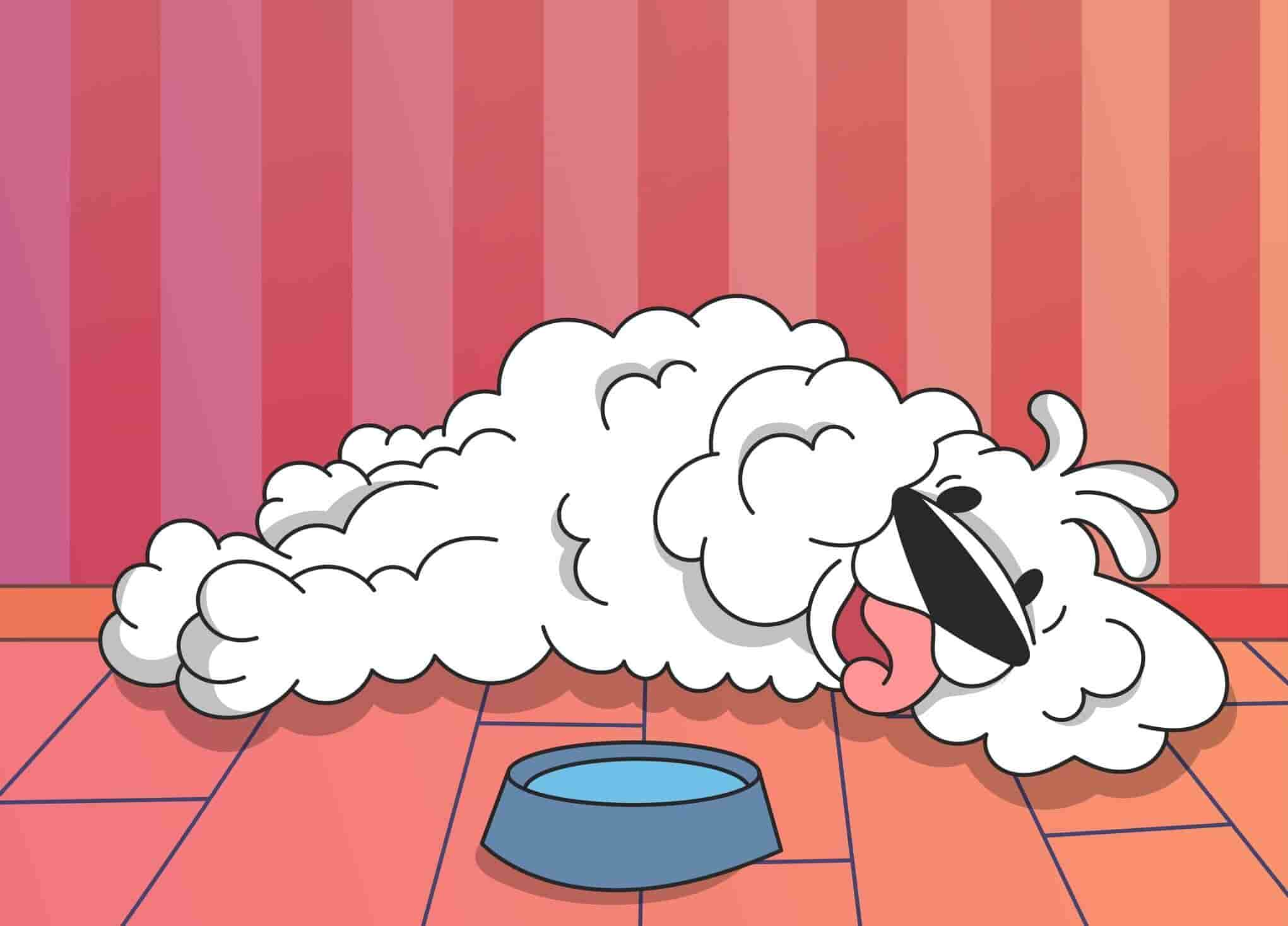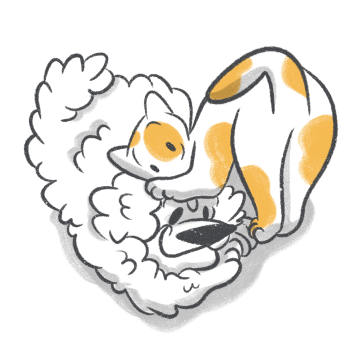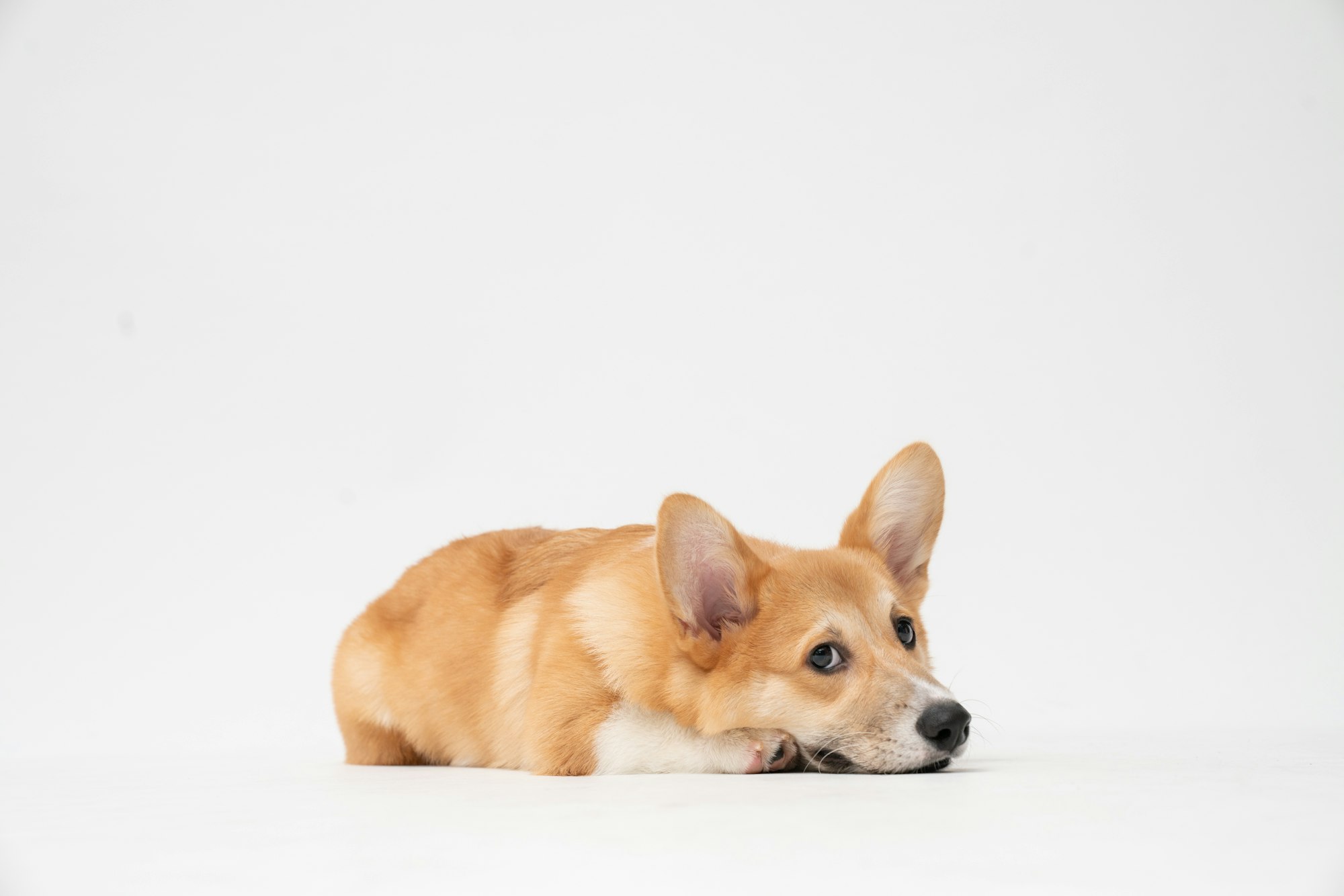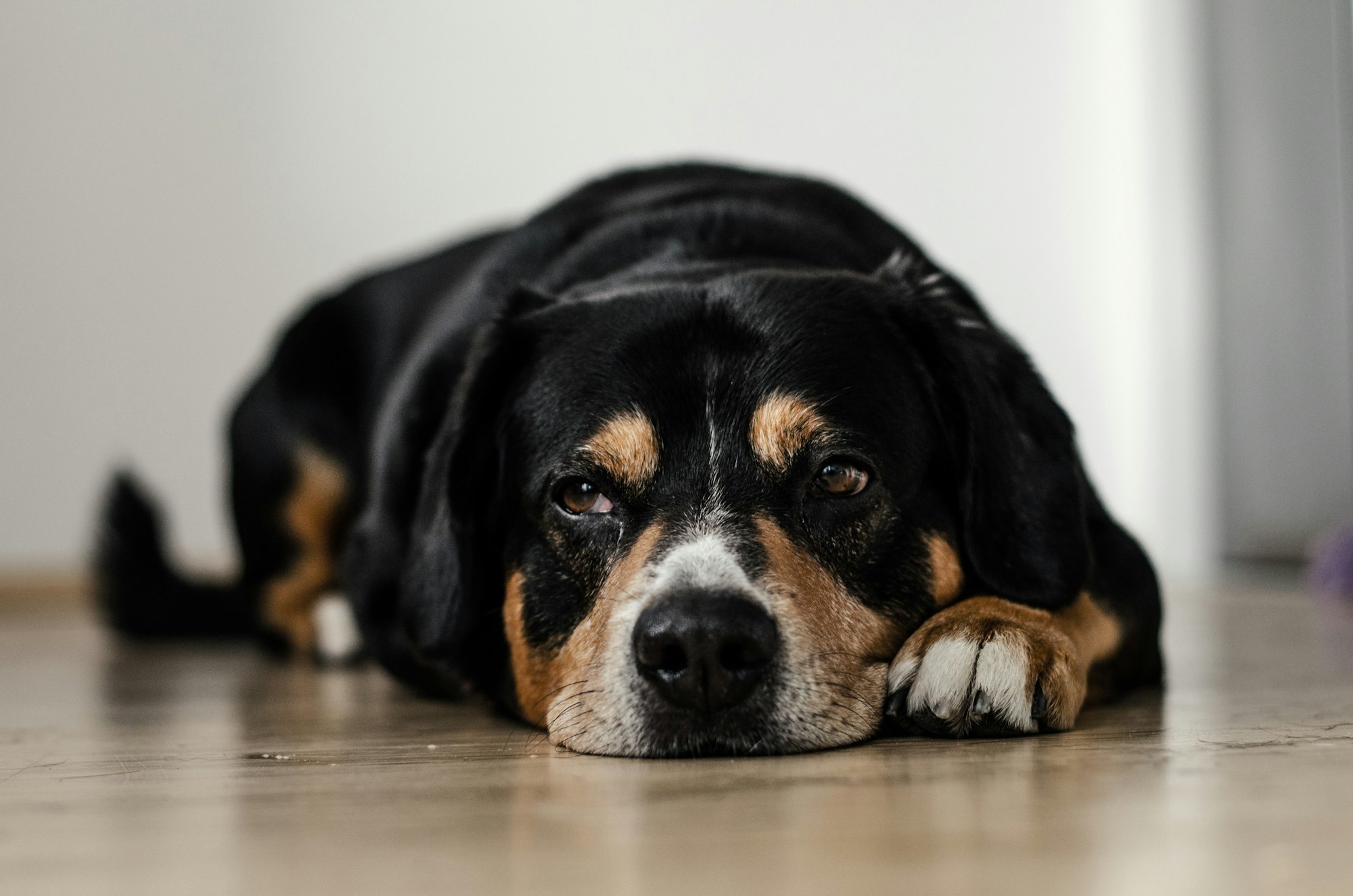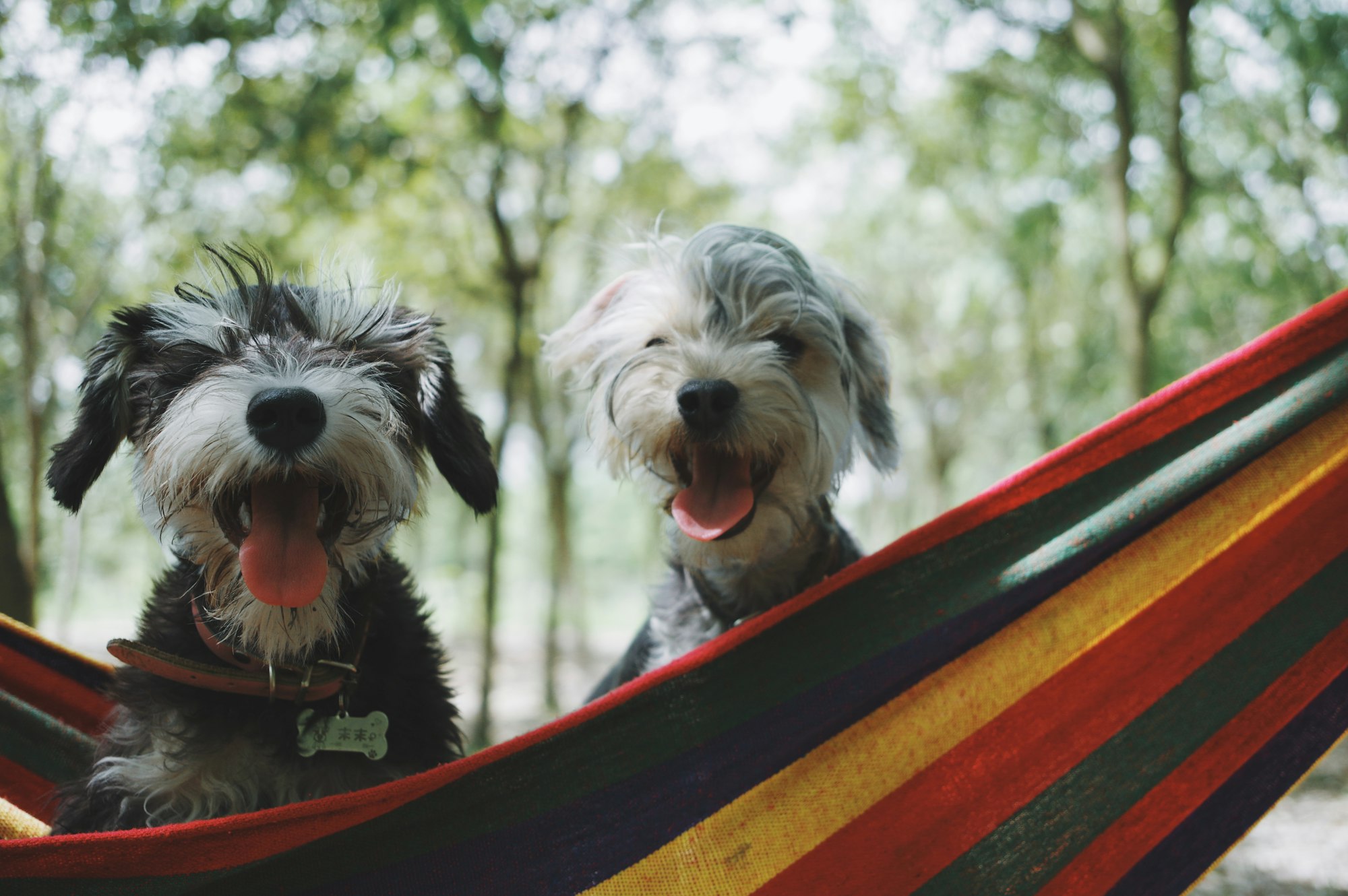It's common to see our furry pals panting after taking a walk, playing, or having engaged in some kind of physical activity. This usually stops a few minutes, however, after our dog has drank water and has had a bit of rest as well.
But what if our dog seems to be panting too much or doing so without obvious reasons? Might there be something wrong?
Why is my dog panting?
There are various reasons why your dog may be panting. One of the main possible reasons is because they are cooling themselves after engaging in an activity or during a hot day.
Panting is one of the ways in which dogs are able to cool themselves. They don't sweat like humans do when they're feeling hot. Instead, they manage their body temperature by panting as their body's way of cooling themselves.
Aside from regulating their temperature, you won't normally see a dog panting in a relaxed setting. These are some of the reasons why your dog may be panting apart from them cooling themselves:
1. Too much exertion
If a dog is very excited while engaging in high-intensity or long periods of activity, they may experience shortness of breath that could lead to panting.
If you notice your dog slowing down and panting during a long run or after an extended play session, this may be a signal that they need to rest and save their energy. Apart from letting them rest, be sure to provide them with water as well for proper hydration.
2. Heatstroke
If the weather outside is hot or if your dog is suffering from dehydration, you may have noticed your dog panting and wondered: "Why is my dog panting and restless?"
According to research, heat may lead your dog to experience breathing difficulties that result in heavy panting as a way to cool their body down.
Having said this, it is important to give more attention and care to your dog when the weather is hot. This is because continued panting due to heat has a possibility of escalating into heatstroke, which is a life-threatening emergency.
Other symptoms that may accompany panting during heatstroke in dogs are:
- Shaking;
- Gasping for air;
- Heavy breathing/ non-stop panting;
- Confusion;
- Weakness;
- Collapse;
- Bright red gums;
- Seizures;
- Diarrhea/vomiting.
3. Flat-faced dog breeds
Dogs who are flat-faced or brachycephalic including bulldogs and pugs are more predisposed to panting due to their short snouts. So if your furry pal is flat-faced, it's best to take precautionary measures such as making sure that water is available for drinking or cooling them during hot weather.
4. They're feeling stressed or anxious
Say if your dog is in a new environment or there may be stressors, this may result in your dog shaking and panting. If so, keep an eye on their body language. If for example, they are avoiding eye contact, have ears that are motioned backward, and their tail is tucked under, these are some signs that they may be stressed, worried, or anxious.
If this happens regularly, it is essential to consult with a veterinarian to help determine what's causing their stress or anxiety.
5. Pain/Illness/Disease
If your dog is in pain especially when they experienced physical trauma, a symptom may be excessive panting along with trembling, vocalization, breathing difficulties, limping, and licking in one spot.
Panting in dogs may also be due to respiratory or heart conditions, tumors, and Cushing's disease, among others. This is something to look out for especially with senior dogs.
6. Allergy or toxicity
If your dog may have ingested or may have been exposed to something toxic or anything that they may be allergic to, panting is one of the symptoms along with vomiting, drooling, and lethargy.
It could be a side effect of a certain medication, but it may also be a life-threatening emergency so it is important to keep possible toxic substances and food away from your dog.
If you notice that your dog is having a hard time, look at their gums. If they're pale white or bluish, it's a symptom that they're lacking oxygen and should be brought to the vet immediately.
How to tell if it's normal or too much
How do you know if a dog is panting too much or if it is just a normal part of a dog's cooling process?
Recognizing the early signs is essential to prevent complications. Observing your dog's body language and behavior is key in determining whether your dog's panting is normal or if you need to go to the vet.
If your dog is exhibiting the following symptoms, give them first aid and call your vet immediately:
- Shallow and rapid breathing;
- Lethargy and refusal to move;
- Panting with their tongue going upwards;
- Extending their necks.
Panting in older dogs
Just like when we, humans, age, a dog's physical capabilities also decrease as they age.
Read more: 8 Useful Tips on How to Care for a Senior Dog
While older dogs may be more prone to panting than younger dogs as their stamina is decreased, there could also be an underlying illness or disease.
There are several possible reasons why your senior dog may be panting. One could be that they are in pain due to common senior ailments such as dental disease, chronic illnesses, and degenerative joint disease.
Another reason may be heightened anxiety as dogs grow older. It could also be that they have a chronic illness that is causing them discomfort.
Another reason may be that they have Sundowner Syndrome of Cognitive Dysfunction, similar to dementia in humans. Other causes of stress for your senior dog that may lead to panting include having Geriatic Separation Anxiety, as well as loss of hearing or vision.
FAQ
Why is my dog panting and restless?
If you notice your dog panting and restless at the same time, it would be wise to try to look for obvious signs as to why. For example, if the weather is hot that day, do they have access to drinking water, or is exercising during a hot time of the day causing them to pant?
Being mindful and making sure that our dog isn't left in hot spots around the house as well as providing them with water would help.
There are other less obvious reasons mentioned above. If you're worried about your dog or if they are panting more than normal (especially when it seems that they are struggling), it's best to take the side of caution by calling (or chatting with!) your vet immediately.
Why is my senior dog panting at night?
Given the reasons above as to why senior dogs pant, these are usually more magnified at night when there are fewer distractions to divert them from the pain they may be feeling.
Why do dogs pant when you pet them?
Rapid breathing in dogs when you pet them may simply be because they're excited to be with you. However, it helps to observe their body language to help determine how they are feeling. If they seem stressed and panting more than normal, it is best to consult with their veterinarian to help determine what is causing it.
Was this article helpful?
Help us make our articles even better

